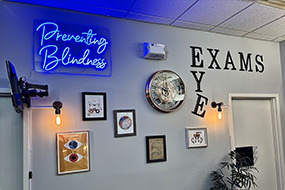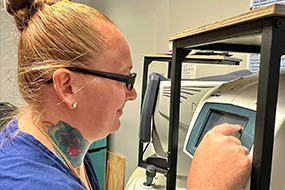
Blurry vision is a common complaint that most people experience at some point. Maybe you forgot your glasses, stared at a screen too long, or simply need a fresh prescription. But sometimes, blurry vision can be a sign of a serious underlying medical condition that requires immediate attention. Knowing when blurry vision is a medical emergency can help protect your sight.
Common Causes of Blurry Vision
Many cases of blurry vision are caused by routine, non-urgent issues. One common reason is refractive errors, which include nearsightedness, farsightedness, or astigmatism. These conditions affect how light focuses on the retina and can make your vision appear blurry until corrected with glasses or contact lenses.
Dry eyes are another frequent culprit. Spending long hours in front of screens, taking certain medications, or being exposed to dry or windy environments can all reduce tear production and lead to discomfort and blurry vision.
Eye strain is also a widespread cause of temporary blurriness. This often occurs from overusing digital devices or working in poor lighting conditions, causing the eyes to become fatigued.
In these situations, blurry vision typically develops gradually. Fortunately, the symptoms can often be improved with simple measures such as resting your eyes, using lubricating eye drops, or updating your vision prescription.
When Is Blurry Vision an Emergency?
There are times, however, when blurry vision should never be ignored. If you experience any of the following, seek emergency medical care right away:
Sudden Vision Loss: A rapid, unexplained loss of vision in one or both eyes can indicate conditions such as retinal detachment, stroke, or optic neuritis.
Blurry Vision with Eye Pain or Redness: Pain, redness, or swelling with blurry vision may suggest acute glaucoma or a severe eye infection, both of which can lead to permanent vision loss without urgent treatment.
Flashes, Floaters, or a “Curtain” Over Vision: Seeing sudden flashes of light, a shower of floaters, or a dark curtain across your vision may signal a retinal tear or detachment - these are true emergencies.
Blurry Vision with Other Neurological Symptoms: If blurry vision is accompanied by severe headache, weakness, numbness, difficulty speaking, or confusion, it could be a sign of stroke or a neurological condition and requires immediate medical help.
Chemical or Physical Eye Injury: Any chemical exposure, trauma, or foreign object in the eye resulting in blurred vision should be evaluated immediately to prevent lasting damage.
What to Do If You’re Unsure
If your blurry vision develops suddenly, is severe, or is accompanied by any of the symptoms listed above, get emergency medical care. When in doubt, it’s always better to be on the side of caution. Delaying treatment for certain eye conditions can result in permanent vision loss or other serious complications.
Concerned About Your Vision?
Blurry vision isn’t always just a minor inconvenience. In some cases, it’s a warning sign that your eyes are in danger. Understanding when blurry vision is a medical emergency could save your sight.
If you’re experiencing blurry vision or have questions about your eye health, schedule a comprehensive eye exam with Doc Eye today. Visit our office in Waterford, Connecticut, or call (860) 499-3500 for further guidance.


















